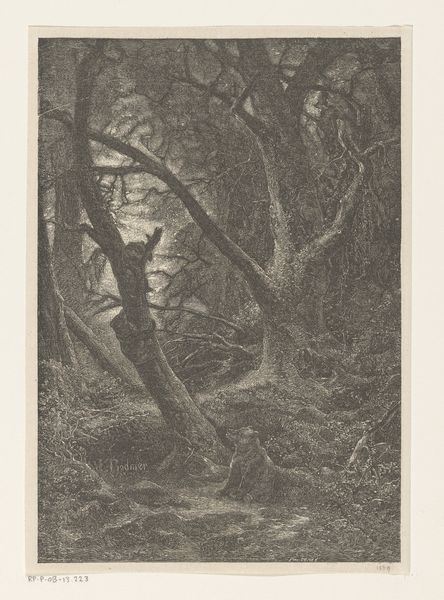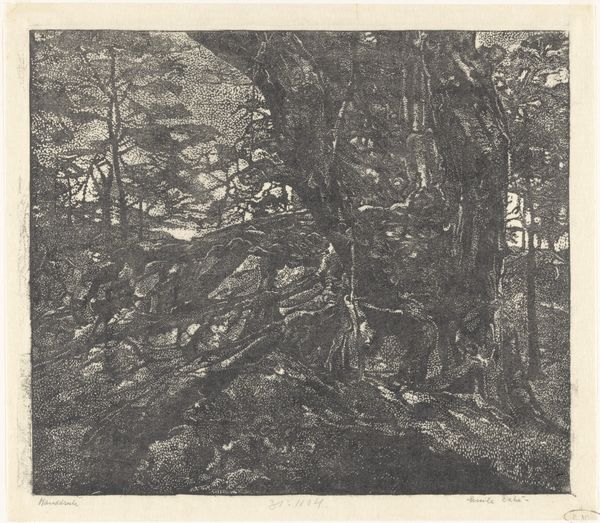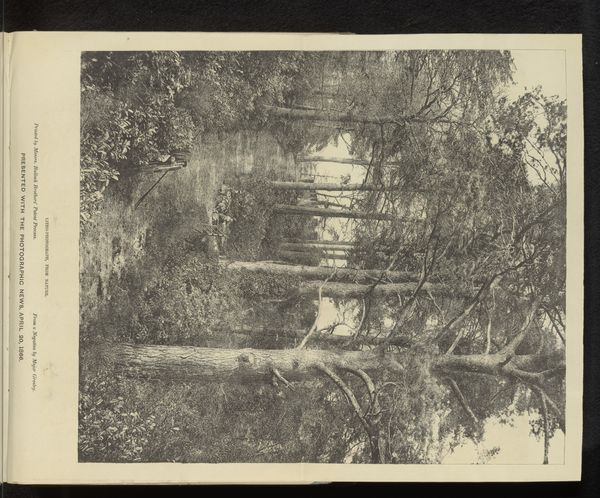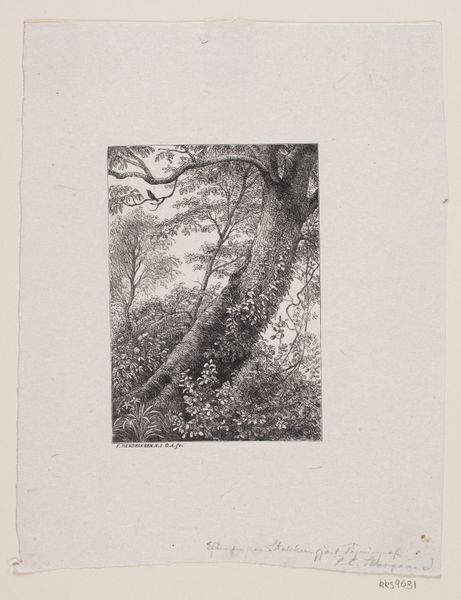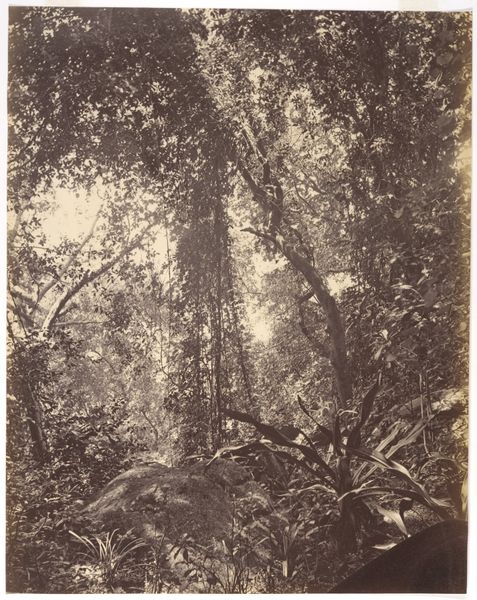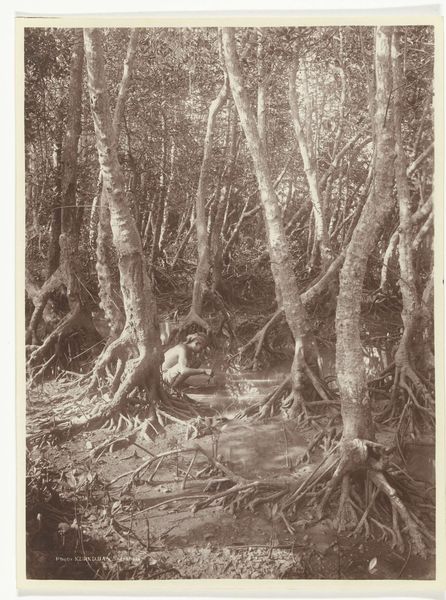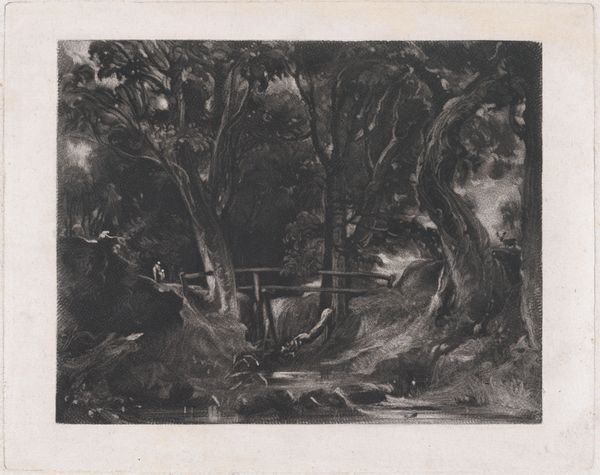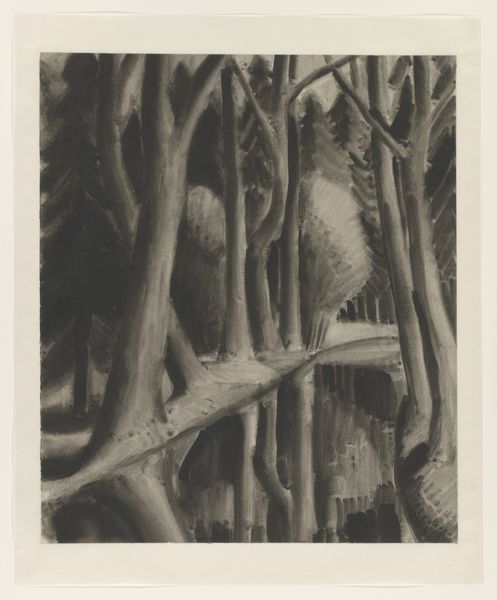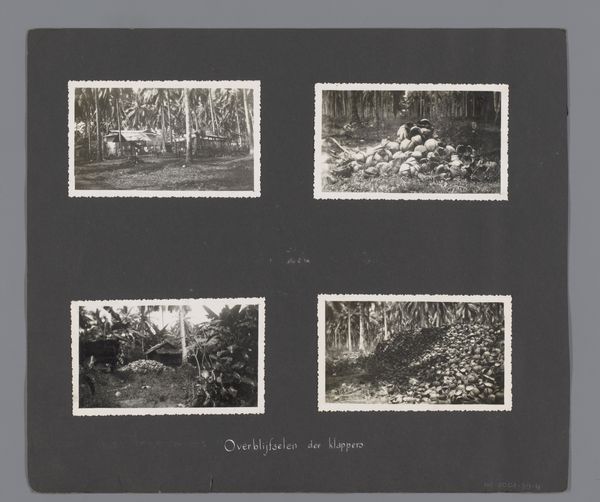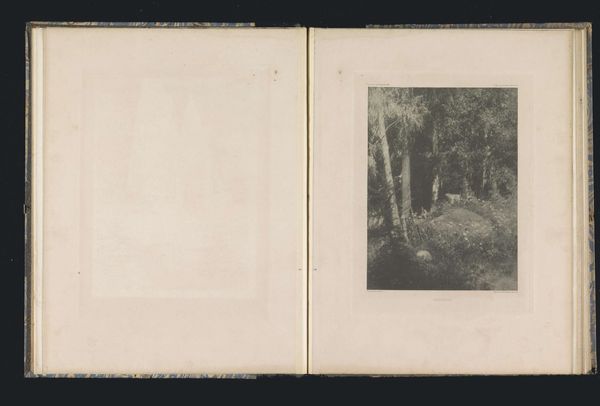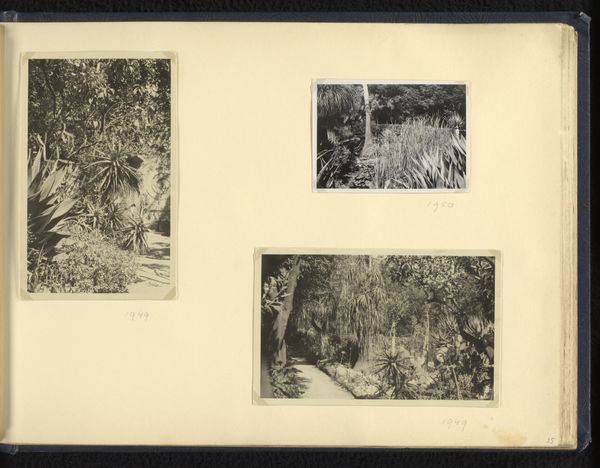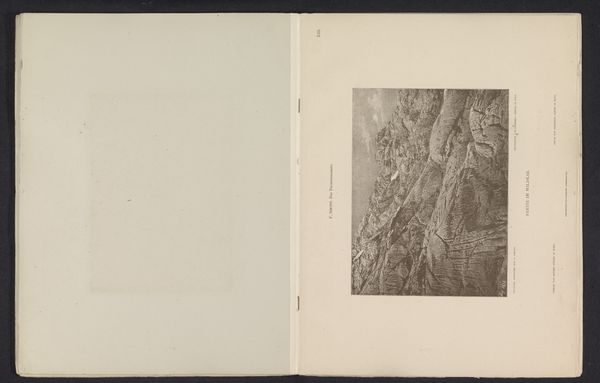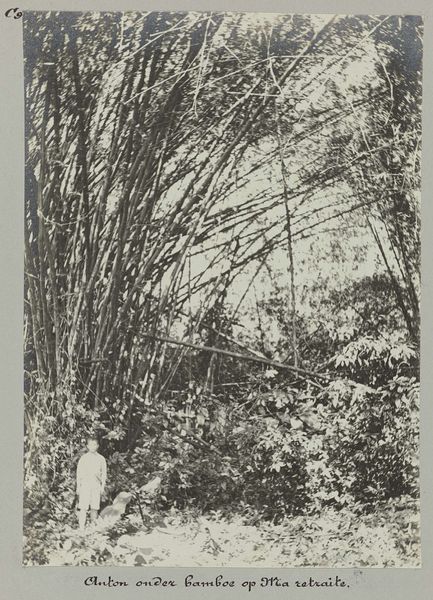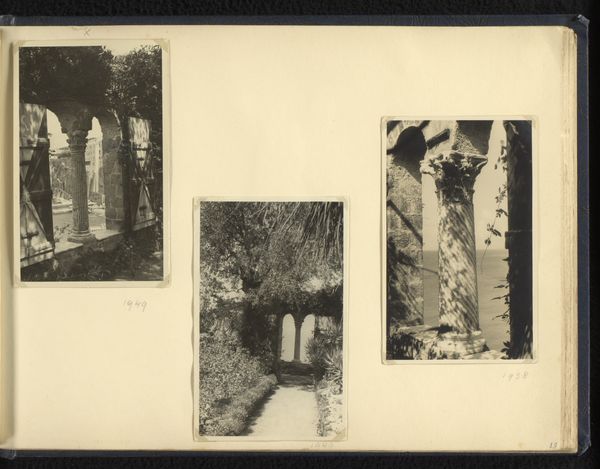
Peperaanplant en kapokbomen op een plantage op Sumatra (boven) en rubberplant (onder) before 1898
0:00
0:00
carljkleingrothe
Rijksmuseum
drawing, graphite, pen
#
drawing
#
light pencil work
#
pen sketch
#
pencil sketch
#
asian-art
#
incomplete sketchy
#
landscape
#
ink drawing experimentation
#
pen-ink sketch
#
pen work
#
graphite
#
sketchbook drawing
#
pen
#
pencil work
#
sketchbook art
Dimensions: height 147 mm, width 222 mm, height 210 mm, width 136 mm
Copyright: Rijks Museum: Open Domain
Editor: Here we have Carl J. Kleingrothe's "Peperaanplant en kapokbomen op een plantage op Sumatra (boven) en rubberplant (onder)," a pen and graphite drawing created before 1898. The image is divided into two scenes depicting a tree and some sort of rubber plantation. I’m struck by how raw and documentary it feels, like a botanist’s field sketch. What can you tell me about it? Curator: Indeed. Note how Kleingrothe uses linear precision to define the forms of trees. However, they are also inscribed by history. Consider the layered symbolism: pepper and rubber—commodities fueling colonial economies. Does the seemingly objective recording betray an ideological subtext? Look closely, do you detect the hand of man shaping nature? Editor: I do see what appear to be supports around the plants now that you mention it, almost scaffolding-like. Curator: Precisely! These aren't just landscapes. They’re visual records of resource extraction and cultural transformation. How do you think contemporary viewers would react to such imagery, compared to audiences of Kleingrothe’s time? Does the symbolism resonate differently? Editor: I think the drawing prompts a consideration of labor and ecological change in ways that it probably didn't for its initial audience, highlighting the contrast between seemingly 'natural' landscapes and human intervention. I will definitely be researching Sumatra's plantation history when I leave here today. Thanks! Curator: You’re welcome. It is a potent reminder how seemingly objective art can reveal layers of historical, cultural, and even psychological complexity with a deeper look at the visual imagery and cultural memory that is apparent in seemingly straightforward artistic landscape portrayals.
Comments
No comments
Be the first to comment and join the conversation on the ultimate creative platform.
